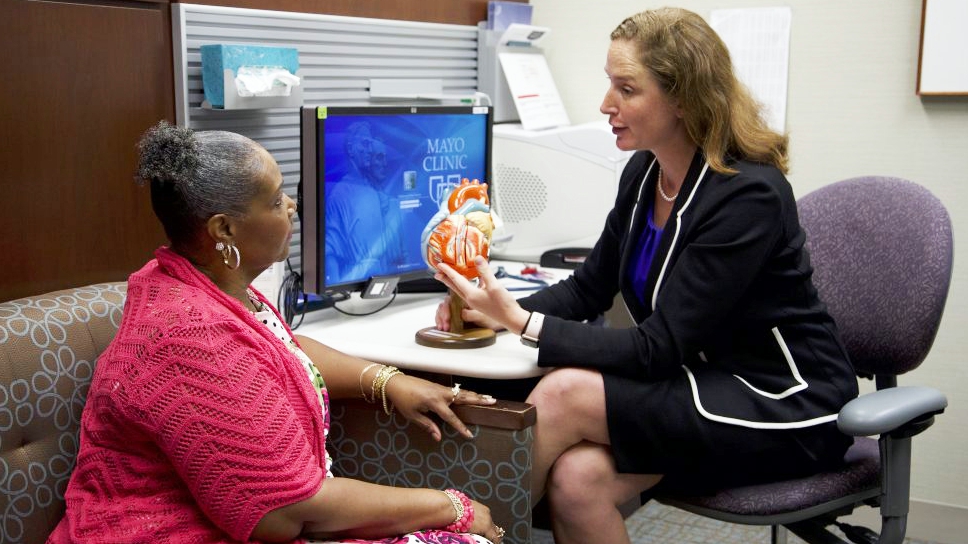-
Cardiovascular
Mayo Clinic Minute: Menopause and the heart connection
Women experience menopause at different ages — and different ways — which can, among other things, affect their heart health.
The average age of natural menopause in the U.S is 52. There's early menopause, under age 45, and premature menopause, under age 40, which may affect a very small group of women. There is also premature ovarian insufficiency.
Dr. Chrisandra Shufelt, a Mayo Clinic women's health specialist, says it's important for anyone who experiences menopause to think about their heart health.
Watch: The Mayo Clinic Minute
Journalists: Broadcast-quality video pkg (0:55) is in the downloads at the end of the post. Please courtesy: "Mayo Clinic News Network." Read the script.
"There are different ages that women can go into menopause. And that impacts heart health as well," says Dr. Shufelt.
Different ages because there are different ways you can go into menopause.
"Menopause can be natural, or it can be surgical removal of the ovaries. It doesn't necessarily mean removal of the uterus. It just means removal of the ovaries," she says.
Medication or therapies, like chemotherapy, can induce menopause as well.
"The earlier a woman goes into menopause, whether it's natural or whether it's surgically induced, or whether it's chemotherapy or medication induced, the higher the risk for future heart attacks are," says Dr. Shufelt.
And that's an ideal time to get your heart health assessed.

"Because we know that the loss of estrogen, the drop of estrogen can impact some of the specific risk factors for heart health and those are high cholesterol numbers, high blood pressure and things that can impact your future risk," she says.
Get regular exercise and a eat a healthy diet to help protect your heart.
Protecting your heart through diet
The Mediterranean diet has long been billed as a heart-friendly plan to improve health and prevent disease. It emphasizes plant-based foods, olive oil as the main fat source, moderate intake of fresh fish, seafood, dairy and poultry, and limited consumption of red meat and sweets.
Follow these tips to get started:
- Build meals around vegetables, beans and whole grains.
- Eat fish at least twice a week.
- Use olive oil instead of butter in preparing food.
- Serve fresh fruit for dessert.
Related content:
- Menopause awareness and education should start earlier in life
- Mayo Clinic Minute: Why alcohol and menopause can be a dangerous mix
- Mayo Clinic Minute: Heart disease in African American women







